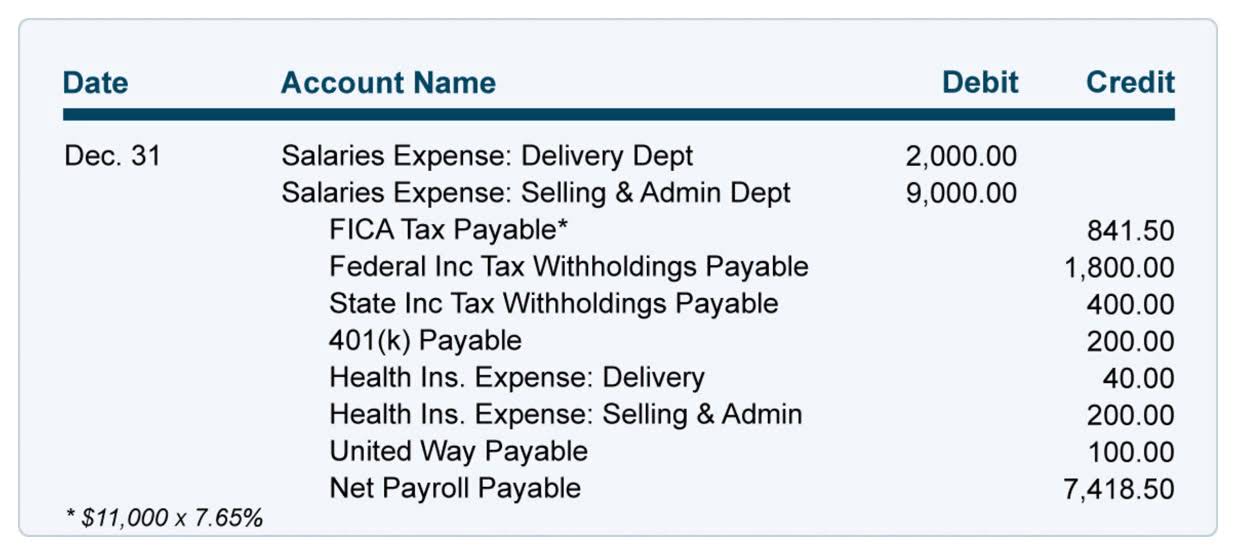
The interest that accrues is the amount you owe, usually at the end of the month, which is included in your loan payment. Simply put, accrued interest is money that grows over time based on interest rate and the amount originally borrowed. Whether or not accrued interest is an ideal way to save or grow wealth depends on other saving and earning options available.
Do I have to pay accrued interest?
Under monthly compounding, the daily accrual amount, $41.0958, is the same for each day in the first month. On the compound date, the total daily accrued interest to that point is added to the balance and creates a new base amount. Thus, every day during the second month, interest will accrue on the new, compounded loan balance. Another daily interest accrual interest accrued meaning example is a margin loan taken by an investor from their brokerage. Since margin loans are usually used for investments over a short period of time, the brokerage needs to accrue interest daily to make a profit off their loan. Regular review ensures that accrued expense balances remain current and reflect the most up-to-date financial obligations.
Why You Can Trust Finance Strategists
An accrued expense is a cost that a company has incurred but hasn’t yet paid for. It’s recognized in the company’s financial records before the actual payment is made, aligning with the accrual basis of accounting, which aims to match expenses with the period in which they occur. The interest owed is booked as a $500 debit to interest expense on Company ABC’s income statement and a $500 credit to interest payable on its balance sheet.
Accrued Expense
Accrued expenses are recorded in the company’s books before any cash changes hands. An entry is made to recognize the expense and the corresponding liability, with the expense appearing on the income statement and the liability shown on the balance sheet. Generally, when a person borrows money, accrued interest will increase what they owe. But when it comes to things like investments and savings accounts, accrued interest means interest is being earned.

In this case, the buyer must pay the seller the interest accrued from June 1 to October 1. Generally, the price of a bond includes the accrued interest; this price is called the full or dirty price. To determine the account’s average daily balance, add up the principal balance on each day of the month and then divide by the number https://www.bookstime.com/ of days in the month. The easiest way to think about the difference is a credit card versus a mortgage. With a credit card, you build up a balance and accrue interest that must be paid monthly. With a mortgage, there is an agreed-upon regular interest rate and you pay it while paying back the mortgage amount (principal).

This must be prorated in order to determine the interest income for 9 months. You probably won’t have to do the calculations manually, but just knowing how much interest accrues on an account is important for borrowers and lenders. By staying attentive and employing efficient approaches, you’ll be better prepared to handle the various aspects of financial management. This diligence will help establish a solid financial base for your business, setting you up for long-term success.

AccountingTools
- Hence, the interest which is to be paid on a future date but is accumulated till now is recorded as an expense and a liability by the Company.
- While accrued expenses don’t immediately affect cash flow, they impact future cash requirements.
- The company has use of the vehicle for the entire prior month, and is, therefore, able to use the vehicle to conduct business and generate revenue.
- Companies make an educated guess based on historical data or expected costs, and as more information becomes available, the accrued amount is adjusted to reflect the actual expense.
- If a bondholder sells this bond on October 1, the buyer receives the full coupon payment on the next coupon date scheduled for December 1.
- The Motley Fool reaches millions of people every month through our premium investing solutions, free guidance and market analysis on Fool.com, top-rated podcasts, and non-profit The Motley Fool Foundation.
Capitalized interest appears on the balance sheet rather than the income statement. Businesses should review and adjust their accrued expenses at least at the end of each accounting period, which is typically monthly or quarterly. However, for more accurate financial management, many companies perform these reviews more frequently. Understanding these distinctions is crucial for accurate financial reporting and analysis. While accrued expenses focus on costs incurred but not yet paid, other financial concepts deal with different aspects of timing and recognition in accounting.

Do You Pay Taxes on Accrued Interest?
- If a bond is bought or sold at a time other than those two dates each year, the purchaser will have to tack onto the sales amount any interest accrued since the previous interest payment.
- Those who must pay interest will record the accrued interest as an expense on the income statement and a liability on the balance sheet.
- The borrower’s adjusting entry will debit Interest Expense and credit Accrued Interest Payable (a current liability).
- Incorporating accrued expenses into financial models requires careful consideration.
- In this case, the company creates an adjusting entry by debiting interest expense and crediting interest payable.
The amount of accrued interest is posted as adjusting entries by both borrowers and lenders at the end of each month. The entry consists of interest income or interest expense on the income statement, and a receivable or payable account on the balance sheet. Since the payment of accrued interest is generally made within one year, it is classified as a current asset or current liability. Understanding accrued expenses is crucial for maintaining accurate financial records and presenting a true picture of a company’s financial position. By grasping this important financial concept, you’ll be better equipped to manage your business’s finances effectively and make informed decisions. Mastering accrual accounting principles and ensuring compliance with financial reporting standards hinges on a thorough understanding of accrued expenses.
- Explore opportunities for business tax credits that may be available to your company, as these can provide valuable financial benefits alongside proper accrued expense management.
- Borrowers should seek less frequent interest accrual to avoid balances that could grow out of control.
- When it comes to accruing interest, you’re either earning it or paying it.
- You technically should be paid half of that bond’s next interest payment.
- If employees have to work on January 29, 30, or 31, those workdays still count toward the January operating expenses.



